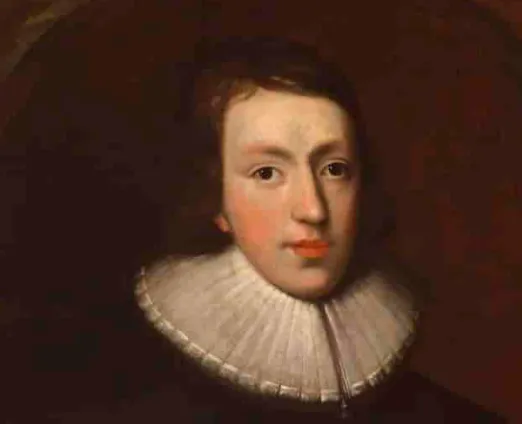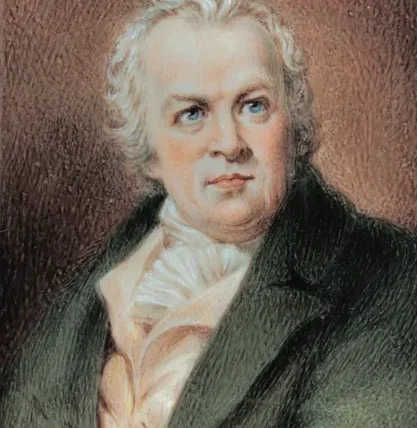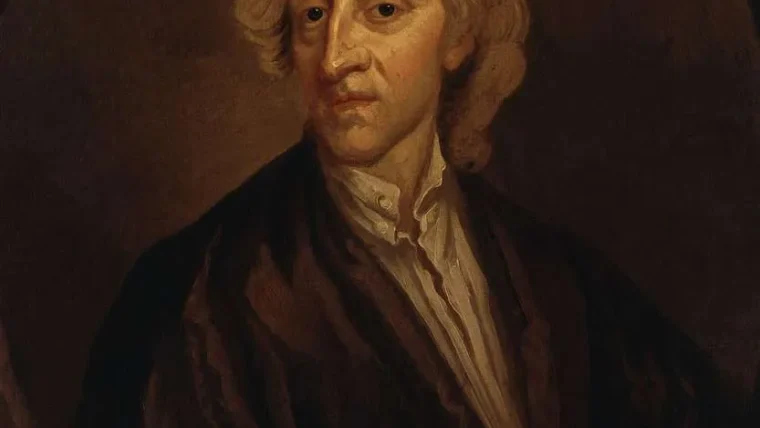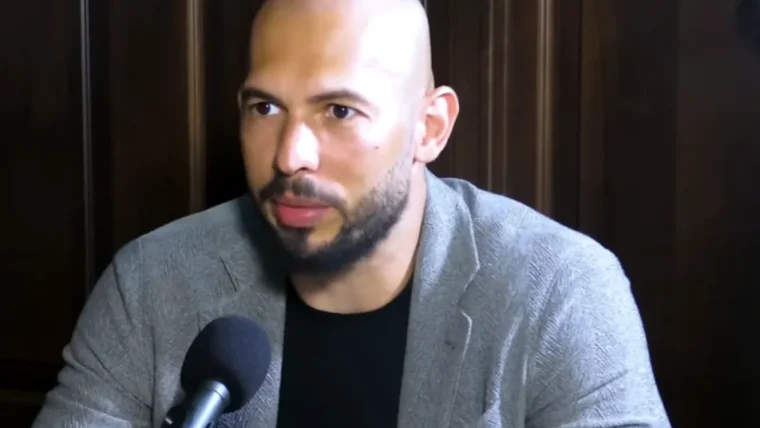Early Life and Education
John Milton, widely regarded as one of the greatest poets in the English language, was born on December 9, 1608, in Cheapside, London. As a child, he displayed exceptional intellect and a keen interest in literature, nurtured by his father’s extensive collection of books.
Growing up in a literate household, Milton was exposed to a multitude of authors and thinkers, which greatly influenced his intellectual development from an early age. His father, a scrupulous businessman, recognized his son’s potential and ensured that he received the best education possible.
Milton’s formal education began at St. Paul’s School in London, where he excelled in Latin and developed a strong foundation in classical literature. This early exposure to ancient works, such as Homer’s epics and Virgil’s Aeneid, laid the groundwork for his later poetic endeavors.
After completing his studies at St. Paul’s, Milton went on to attend Christ’s College, Cambridge, in 1625. At Cambridge, he immersed himself in the rigorous academic environment, further expanding his knowledge of various subjects ranging from rhetoric to philosophy. Throughout his educational journey, Milton’s insatiable curiosity and extraordinary intellect propelled him towards intellectual pursuits and a future career in writing and public service.
Family Background and Upbringing
Born on December 9, 1608, in London, John Milton hailed from a middle-class family. His father, John Milton Sr., worked as a scrivener, a legal and financial profession, and his mother, Sarah Jeaffreson, came from a prosperous family. Although not part of the aristocracy, the Miltons had a respectable social standing and enjoyed a comfortable lifestyle.
Milton’s early years were marked by a rigorous and disciplined upbringing. He received his education at St. Paul’s School in London, where he excelled in his studies and demonstrated a keen interest in literature and languages.
His father, recognizing his son’s intellectual capabilities, made sure Milton received a comprehensive education at home, supplementing his school curriculum with private tutoring. This early exposure to a wide range of subjects, including music, languages, and classical literature, laid the foundation for Milton’s later intellectual pursuits and literary achievements.
Influence of Religion and Puritanism
As an expert autobiographer, it is essential to delve into the influence of religion and Puritanism in the life and works of John Milton. Born into a devoutly religious Puritan household in 1608, Milton was raised with a strong belief in the importance of religious piety and moral righteousness. His father, a scrupulous Puritan, played a significant role in molding his religious convictions from an early age.
This robust religious upbringing not only laid the foundation for Milton’s deep-rooted faith but also instilled in him a sense of duty and responsibility towards God and the community at large.
During this time of religious and political unrest in England, Puritanism emerged as a popular religious and social movement with its emphasis on simplicity, discipline, and the pursuit of spiritual purity. These principles resonated deeply with Milton, transforming his religious beliefs into a central aspect of his identity.
The Puritan ideology shaped his understanding of the individual’s relationship with God, the nature of sin and redemption, and the importance of adhering to a strict moral code. This fervent religious conviction can be seen echoed throughout Milton’s writings, where he emphasizes the divine providence guiding human affairs and the eternal struggle between good and evil.
The influence of religion and Puritanism, therefore, served as a driving force behind Milton’s literary and intellectual endeavors, shaping the themes and ideas that he would later explore in his most famous works.
Educational Journey and Intellectual Development
My educational journey began in the village school, where I first learned to read and write. It was here that I developed a passion for literature and an insatiable curiosity for the world around me. In my early years, I voraciously consumed any books I could get my hands on, immersing myself in the written word and seeking knowledge beyond the classroom walls. It was during this time that I began to shape my intellectual identity, drawn to the works of the ancient philosophers and the renowned poets of my time.
As I progressed in my studies, I was fortunate enough to secure a place at the prestigious Christ’s College, Cambridge. This was a pivotal moment in my educational and intellectual development, as the esteemed institution provided me with countless opportunities for growth and exploration.
Surrounded by like-minded scholars and guided by esteemed mentors, I delved deeper into the realms of literature, philosophy, and theology. The rigorous academic environment challenged me to expand my intellectual horizons, constantly pushing the boundaries of my knowledge and understanding. Cambridge became a crucible for my ideas and the foundation upon which I nurtured my intellectual pursuits.
Early Writings and Literary Pursuits
Milton’s early writings and literary pursuits laid the foundation for his future literary achievements. As a young student at St. Paul’s School, he exhibited his poetic talents, impressing his teachers and peers with his command of language and masterful composition.
Inspired by the works of classical poets such as Virgil and Ovid, Milton composed his earliest surviving poem, “On the Death of a Fair Infant,” at the tender age of 17. This elegy showcased his deep sensitivity and poetic imagination, foreshadowing the profound themes and eloquent style that would define his later works.
Continuing his educational journey at Christ’s College, Cambridge, Milton delved into a wide range of subjects, including rhetoric, logic, and theology. It was during this time that he began to develop his penmanship and refine his literary skills. His early writings, such as the Latin poem “Ad Patrem” and the sonnet “On Reformation in England,” highlighted his growing interest in political and religious matters.
With a keen awareness of the socio-political climate of his time, Milton’s literary pursuits became increasingly intertwined with his quest for personal and societal enlightenment.
Entry into Public Service and Political Involvement
John Milton’s foray into public service and political involvement marked a significant shift in his life and career trajectory. After completing his education at Christ’s College, Cambridge, Milton initially aspired to pursue a career in the church.
However, his political convictions and desire to contribute to the welfare of his nation led him to embark on a different path. Influenced by the political and social climate of his time, Milton soon became actively involved in political activism and took up various roles in government.
Milton’s political journey began with his appointment as a Latin secretary to the Council of State in 1649, a position he held during the tumultuous years of the English Civil War and the Interregnum era. In this role, he was entrusted with diplomatic correspondence, composing in Latin to communicate with foreign states and navigate the complexities of international relations.
Milton’s linguistic proficiency and eloquence enabled him to effectively represent the interests of the Commonwealth, playing a crucial behind-the-scenes role in shaping political negotiations and forging alliances on behalf of the English government.
Marriage and Personal Life
John Milton’s personal life was marked by both joy and tragedy. He married three times during his lifetime, each marriage bringing its own set of experiences. His first wife, Mary Powell, was young and their marriage was not without its difficulties.
However, after a period of separation, they eventually reconciled and had several children together. Tragically, Mary died just a few years after their reconciliation, leaving Milton devastated.
Following Mary’s passing, Milton married his second wife, Katharine Woodcock, who also tragically died shortly after their marriage. The loss of two beloved wives was a profound blow to Milton, and it deeply affected his emotional well-being.
Despite these heartbreaks, Milton found love again when he married Elizabeth (Betty) Minshull in 1663. This marriage seems to have brought him the happiness and stability that had eluded him in his earlier relationships.
Although the specifics of their marriage remain largely unknown, it is clear that Betty provided companionship and support to Milton during the later years of his life.
Blindness and its Impact on Milton’s Life and Work
For John Milton, the loss of his eyesight had a profound impact on both his personal life and his literary career. Blinded in his mid-forties, Milton grappled with the challenges of living in a visually-oriented world without the use of his eyes.
This physical setback forced him to adapt and find new ways to navigate through life. Despite his affliction, or perhaps because of it, Milton’s creative genius remained undiminished, and his blindness became a catalyst for the transformation of his writing style and themes.
In Milton’s case, his blindness did not lead to despair or resignation, but rather ignited an inner fire that propelled him to explore new realms of thought and expression. Stripped of his visual perception, he turned inward, relying on his memory, imagination, and intellect to shape his literary works.
This forced introspection gave rise to the profound philosophical and theological ideas that are woven throughout his most famous epic poem, Paradise Lost. Milton’s blindness became a metaphorical veil that allowed him to delve deeper into the realms of the human condition, morality, and the complex nature of good and evil.
The impact of his blindness on his writing was not just a matter of style; it fundamentally altered the way he approached his subjects and allowed him to produce some of the most profound and influential works in English literature.
Paradise Lost: Creation and Reception
Paradise Lost, John Milton’s epic poem, stands as one of the greatest literary works in the English language. Created during a time of political and religious unrest in seventeenth-century England, the poem explores complex themes of sin, redemption, and the nature of God. Milton’s intention was to justify the ways of God to man and offer a glimpse into the biblical story of the fall of Adam and Eve.
With its ambitious scope and profound philosophical insights, Paradise Lost captured the attention and admiration of readers from its publication onward.
Upon its release in 1667, Paradise Lost garnered both praise and criticism. The poem’s depiction of Satan as a sympathetic and complex character challenged traditional religious beliefs and sparked debates among scholars and theologians.
While some religious authorities condemned the work for its perceived blasphemous elements, others applauded Milton’s poetic skill and profound exploration of theological and moral questions.
Despite the controversy, Paradise Lost found a receptive audience and quickly became a staple in English literature, influencing generations of writers and thinkers. Its enduring popularity can be attributed to the depth of its themes, Milton’s mastery of language, and the timeless relevance of its exploration of the human condition.
Exploring Milton’s Political and Religious Beliefs through his Works
Throughout his extensive body of work, John Milton offers a unique exploration of his political and religious beliefs. Milton’s writings reflect his deep-rooted convictions, showcasing his unwavering commitment to his faith and his staunch support for political and social reforms.
One of his most notable works, “Areopagitica,” serves as a powerful testament to his belief in the freedom of speech and expression. In this polemic, Milton vehemently argues against the licensing of books, advocating for the unimpeded dissemination of ideas and knowledge.
The influence of his Puritan upbringing and his experiences during a time of political turmoil are evident in his writings, which often intertwine religious and political themes, crafting a narrative that strives to challenge conventional norms and encourage progressive change.
Milton’s renowned epic poem, “Paradise Lost,” further delves into his exploration of political and religious beliefs. The work offers a complex interpretation of the biblical story of Adam and Eve’s fall from grace, wherein Milton interweaves his personal ideologies with a reimagining of the Christian narrative.
Through the character of Satan, Milton explores themes of individualism, rebellion, and the consequences of unchecked power, shedding light on his skepticism toward monarchical authority.
At the same time, the poem echoes his religious convictions, presenting a profound theological exploration of human agency, divine justice, and the eternal struggle between good and evil. Milton’s ability to seamlessly blend personal beliefs with artistic expression not only showcases his intellectual prowess but also gives us a window into the multifaceted nature of his political and religious philosophy.
Controversial Stances and Censorship Issues
Milton’s writings and ideas often sparked controversy and censorship during his time. One of his most contentious stances was his advocacy for divorce, which he expressed in his famous treatise “The Doctrine and Discipline of Divorce.” In this work, Milton argued for the dissolution of unhappy and incompatible marriages, challenging the prevailing religious and societal beliefs that divorce was morally wrong.
His views on divorce were considered radical and blasphemous, leading to the suppression and censorship of his writing by the English government and the Church.
Another area where Milton’s ideas faced opposition and censorship was his defense of freedom of the press. In his pamphlet “Areopagitica,” he passionately argued against the licensing and censorship of printed works. Milton believed that it was crucial for the free exchange of ideas and the pursuit of truth that authors have the freedom to publish their thoughts without interference.
However, his stand against government control of the press was met with resistance, and the publication of “Areopagitica” was initially suppressed and banned by the authorities. Despite the challenges, Milton’s controversial stances on divorce and freedom of the press continue to be recognized for their profound influence on the development of modern democratic values.
Later Works and Literary Legacy
Milton’s later works mark a significant phase in his literary journey and leave behind a profound literary legacy. One of his most renowned works during this period is “Paradise Regained,” published in 1671.
In this epic poem, Milton explores the theme of temptation and redemption, contrasting the fall of man in “Paradise Lost” with the triumph of Christ over Satan. Through his powerful portrayal of biblical narratives, Milton continues to showcase his poetic prowess and ability to delve into complex moral and spiritual themes.
Additionally, Milton’s later works display his continued dedication to political and religious discourse. In his later prose writings, such as “The Ready and Easy Way to Establish a Free Commonwealth” and “The History of Britain,” he passionately advocates for republican government and draws upon historical narratives to support his arguments.
These works emphasize Milton’s commitment to championing political liberty and his belief in the power of literature and intellectual discourse to shape society. With his multifaceted literary output and influential ideas, Milton’s later works continue to resonate with readers and contribute to the rich tapestry of English literature.
Milton’s Influence on English Literature and Language
Milton’s indelible mark on English literature and language is remarkable, shaping the literary landscape for centuries to come. His epic poem, “Paradise Lost,” stands as a towering achievement, illustrating his mastery over language and his unique poetic style. The profound influence of this work cannot be overstated, as it not only redefined the genre of epic poetry but also left a lasting impact on subsequent generations of writers.
Milton’s use of blank verse in “Paradise Lost” revolutionized English poetry, liberating it from the constraints of traditional rhyme schemes. This departure from convention paved the way for future poets, allowing them to experiment with new forms and styles of expression.
Moreover, his command of language and his poetic craftsmanship continue to be celebrated, inspiring countless poets to traverse emotional and philosophical depths in their own works. Indeed, Milton’s influence on the English language is immeasurable, as his eloquent use of metaphor and vivid imagery became the gold standard for poetic expression, inspiring poets to harness the power of words to convey complex ideas and emotions.
Personal and Professional Relationships with Other Writers and Intellectuals
Milton’s personal and professional relationships with other writers and intellectuals played a crucial role in shaping his literary journey and intellectual development. One of the most prominent figures he interacted with was the philosopher and poet John Donne. Their acquaintance began during Milton’s time at Cambridge University, where they engaged in intellectual discussions and shared their literary works.
Despite their contrasting religious views, their friendship endured, and Milton later acknowledged Donne’s influence on his own poetic style.
Another influential figure in Milton’s life was the philosopher and statesman Thomas Hobbes. Although their relationship was initially contentious due to their differing views on political theory, they eventually developed a mutual respect for each other’s intellect. Hobbes particularly admired Milton’s poetic skills and regarded him as one of the most talented writers of their time.
This association ultimately shaped many of Milton’s political beliefs and can be seen in his works, such as “Paradise Lost,” where he explores themes of political power and the struggle for liberty.
Additionally, Milton’s interactions with the philosopher and scientist Robert Boyle were instrumental in shaping his understanding of the natural world. Boyle’s experimental approach to science greatly influenced Milton’s poetic descriptions of nature and the cosmos. Their intellectual exchange pushed Milton to incorporate scientific concepts into his works, resulting in a unique blend of literature and scientific thought.
Milton’s relationships with these fellow writers and intellectuals enriched his intellectual pursuits and broadened his perspectives on various subjects. Surrounded by such accomplished individuals, Milton found inspiration, criticism, and valuable insights that propelled his literary career forward. These connections highlight the importance of collaboration and intellectual discourse in shaping an individual’s creative journey and contributions to the literary world.
Milton’s Lasting Impact on Western Culture and Thought
John Milton’s literary and intellectual contributions have left an indelible mark on Western culture and thought. Through his epic poem “Paradise Lost,” Milton provided a profound exploration of the human condition, addressing themes of free will, temptation, and the nature of evil.
His imaginative portrayal of biblical stories and characters revolutionized the way literature approached religious and philosophical subjects. Furthermore, Milton’s advocacy for freedom of speech and expression in his numerous prose works challenged the prevailing censorship laws of his time, inspiring future generations to champion individual liberties.
Milton’s impact extended beyond the realm of literature. His political writings, such as “The Tenure of Kings and Magistrates,” defended the rights of the people and questioned the divine authority of monarchy.
This bold stance against absolute rule and his belief in the importance of a representative government influenced political thinkers like John Locke and Thomas Jefferson, contributing to the development of democratic ideals. Milton’s powerful rhetoric and persuasive arguments also shaped the foundations of modern republicanism, inspiring movements for independence and self-governance around the world.
Furthermore, his unwavering commitment to the pursuit of truth and intellectual inquiry set a precedent for the Enlightenment thinkers who would follow, fostering a spirit of critical thinking and scientific exploration that still resonates in contemporary society.








